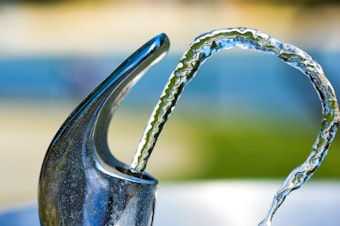
Dip into your average grocery or convenience store, and you’ll have your pick of at least a dozen different brands of bottled water.
But despite being so ubiquitous in American culture today, the meteoric rise of bottled water isn't by coincidence -- and your average bottle and average tap have more in common than you might think.